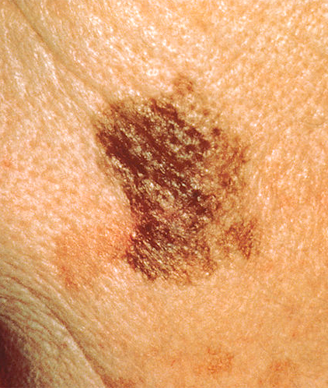Ipilimumab Has High Rate of Immune-Related Adverse Events
In the real-world setting, about one-third of melanoma patients treated with ipilimumab had grade 3 or worse immune-related adverse events.
One-third of ipilimumab-treated melanoma patients experienced immune-related adverse events

Immune-related adverse events (irAEs) occurred frequently among patients with melanoma assigned to treatment with ipilimumab, with about one-third having grade 3 or worse irAEs, according to the results of a single-center study published in the Journal of Clinical Oncology.
According to the study, treatment with the anti–CTLA-4 ipilimumab can result in activation of immune responses against normal tissues, including adverse events such as diarrhea, rash, hepatitis, and hypophysitis. Many of these irAEs are reversible, however, and can be treated with immunosuppressive agents.
In this analysis, Troy Z. Horvat, PharmD, of the Memorial Sloan Kettering Cancer Center, and colleagues sought to get a better picture of irAEs associated with ipilimumab in settings outside of clinical trials.
“Now that ipilimumab is approved for use in most parts of the world, there is extensive experience both in treating these irAEs outside of clinical trials and in evaluating the clinical activity of ipilimumab,” the researchers wrote. “Our institutional experience led us to suspect that the incidence of clinically significant irAEs might be higher than indicated by the incidence of Common Terminology Criteria for Adverse Events grade 3 irAEs and that a higher percentage of patients require immunosuppressive treatment.”
Horvat and colleagues reviewed records from 298 patients with melanoma who were treated with 3 mg/kg ipilimumab between April 2011 and July 2013. Of these patients, 85% experienced an irAE of any grade and 19% of patients discontinued therapy due to this event.
Thirty-five percent of patients examined required systemic corticosteroids for the irAE. Of these patients 31, or 10% of the entire study population, did not have adequate resolution of their symptoms and also required anti-tumor necrosis factor alpha therapy.
The researchers wrote that this higher than usual rate may be explained by their “experience regarding when to abandon less intensive therapies (eg, diet manipulation or budesonide for colitis) and our readiness to use systemic corticosteroids early in the course of irAEs.”
The estimated median overall survival was 16.5 months and median time to treatment failure was 5.7 months. The researchers evaluated the effect of these therapies on overall survival and time to treatment failure using a landmark analysis, but no difference in these outcomes was found when patients were stratified by the presence or absence of irAEs.
In their discussion of the results, the researchers noted that decisions to start treatment were based on clinical judgment and not the use of Common Terminology Criteria for Adverse Event system, which they called “necessarily arbitrary and not particularly suited to irAEs.”
Horvat and colleagues concluded that “these data help guide expectations for both patients and practitioners,” and that practitioners “should be prepared to treat irAEs aggressively and early.”
2 Commerce Drive
Cranbury, NJ 08512
All rights reserved.